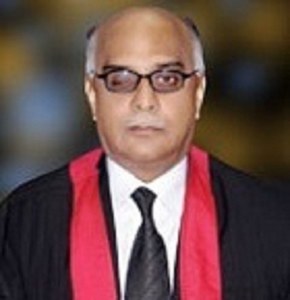ISLAMABAD: Peshawar High Court (PHC) Chief Justice Waqar Ahmad Seth approached the Supreme Court on Tuesday to highlight that he had legitimate expectancy to be elevated to fill the recently vacated post in the SC.
“The petitioner has a lawful right to be considered for the appointment as a judge of the Supreme Court of Pakistan against the available vacancy that has occurred on the retirement of Justice Faisal Arab on Nov 4,” a three-page application filed before the court on Tuesday stated.
Justice Seth had previously petitioned the SC on June 11 questioning the elevation of three judges in the SC — Justice Qazi Mohammad Amin, Justice Aminuddin Khan and Justice Sayyed Mazhar Ali Akbar Naqvi — and stating that he was superseded three times in this elevation to the SC without a valid reason or justification.
On Tuesday, he said he was the senior most chief justice amongst all the high court chief justices, and a vacancy has also occurred since the retirement of Justice Ijaz Afzal Khan in May 2018. Mr Khan belonged to Khyber Pakhtunkhwa.
It is a convention of this court that an appointment to the SC was made against a vacancy belonging to a particular province. Regrettably, against the said vacancy, an appointment was made from Karachi and that too of a much junior judge, the application argued.
It added that later, despite the occurrence of two vacancies in the SC, appointments were made from Punjab, illegally ignoring Justice Seth.
It is imperative in the interest of justice and to avoid prejudice to the petitioner’s seniority, the application contended, that this time no recommendation be made by the Chief Justice of Pakistan Gulzar Ahmed, who is the chairman of the Judicial Commission of Pakistan (JCP), against the vacancy until his petition was decided by the SC.
Propriety demands that the JCP should not consider any recommendation made against the occurring vacancy until a decision is made on this petition, it said.
The application pleaded that the SC should fix his petition at the earliest and in the meantime the JCP be restrained from making any recommendation to fill the vacant post of a judge on the SC.
In his petition, Justice Seth has pleaded that it has been a consistent practice after the amendment of Article 175-A through the 19th Amendment to the Constitution that vacancies on the SC are filed through appointments from amongst the chief justices of the high courts with due regard to their inter-se seniority.
After the introduction of Article 175-A, most of the appointments in the court, except for the appointments of the respondent judges, have been made from amongst the chief justice of the high courts.
The role of the judiciary as it was in the year 2002 and 2003 was publicly criticised by the Pakistan Bar Council (PBC) through a White Paper published in the year 2003, the contents of which have remained unchallenged and unquestioned till date.
The petition argued that the independence of the judiciary was connected with the appointment of judges, and the transparency and practice of the appointment of the judges in letter and spirit in the SC is essential and a basic principle for ensuring the independence of the judiciary and the certainty of the system.
The seniority of the chief justice of the high court has been given extra importance in Article 175-A of the Constitution by including their names in the Judicial Commission along with the next senior judge of the high court in the matter of appointments of additional judges of the high court, the petition contended.
The chief justice, whose ability and competence in the matter of selecting future judge of the high court is recognised by the Constitution should not be superseded in the matter of the appointment of the judge of the SC, the petition pleaded.
The inter-se seniority of the judges of the high courts have even been recognised by Article 209 of the Constitution since the two senior most chief justices of the high courts were the members of the Supreme Judicial Council (SJC), where the conduct of the judges of the superior judiciary is scrutinised.
The petition alleged that three respondent judges, until their elevation as judges of the SC, were junior judges of the high court who were discharging their functions under the chief justices of the high court.
Thus the chief justice of a high court, if elevated to the Supreme Court today, will be junior to these respondent judges, an anomaly which was not curable under the Constitution.
The petition has also referred to a May 19, 2020, Sindh Bar Council’s letter to the chief justice of Pakistan in which the bar council had in detail conveyed the concern of the legal community regarding the recent appointment of judges to the SC.
Published in Dawn, November 11th, 2020












































